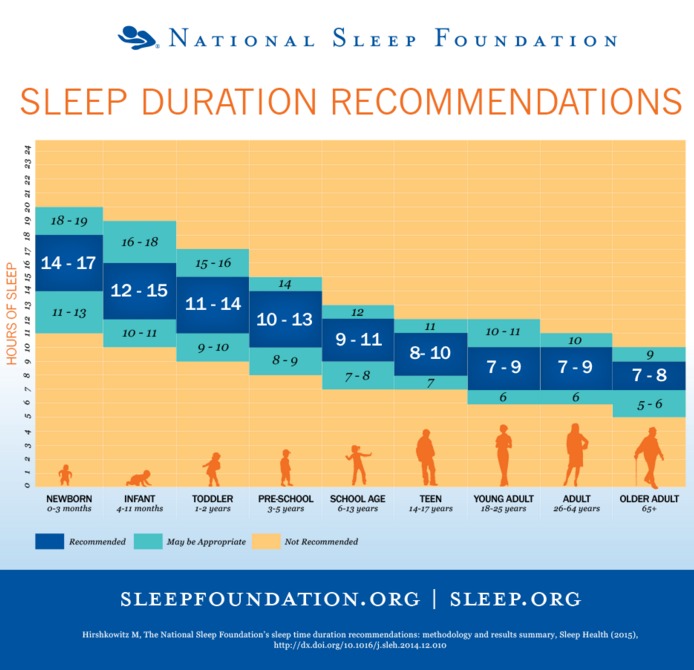Sleep problems that crop up as you age

Your sleep changes throughout your life and while some of the most dramatic changes occur in your 20s, as you reach older adulthood there are some common sleep themes that tend to arise.
You might have noticed a decrease in your ability to fall asleep, you might be waking up still tired, or you are snoring. Approximately 71 per cent of 55 to 64 year olds report similar problems.
About a year ago the National Sleep Foundation developed a customised sleep proposal for adults over the age of 50, after it found that sleep needs vary across ages and are especially impacted by lifestyle and health.
According to the research, if you’re aged between 55 and 64 you should be looking to get between seven and nine hours’ sleep each night, but those aged 65 years and older can get away with between seven and eight hours of sleep each night.

It might not seem like a big issue, but depending on your symptoms — you could be excessively sleepy during the day or you become irritable, unfocussed and achy — medication, lifestyle changes and even cognitive therapy can help.
NSF ecological researcher Natalie Dautovich says there are about six circumstances common among the 50-plus age group that are affecting the way you get your rest.
Bedtime and wake-up time move earlier
For get about your younger days when you felt rebellious staying up into the wee hours and sleeping all day. In this later stage of your life you’ll be lucky to make it past the 6pm news. Your circadian rhythm is delayed until your 20s, which means you genuinely don’t get tired until later in the evening. However, after you come out of this stage the rhythms keep progressing, which is what causes you to drop off your perch earlier in the evening and will have you feeling most cautious, therefore rising earlier, in the morning.
You wake up more during the night
If you’ve been jolted out of your slumber and have found yourself staring at the cracks in your ceiling endlessly, you’re not alone. According to sleep specialist and sleep doctor Michael Breus PhD it’s because the extent of your brain waves is changing.
Breus says that to be classified as deep, restful, restorative sleep, brain waves have to reach a certain height, and once you hit age 50 the spikes just don’t get high enough.
Unfortunately, lighter sleep is a lot easier to disturb, which is why you’re often waking up in the middle of the night. A bump here, a creak there, even a little bit of indigestion can have you bright-eyed and bushy tailed when you’d rather be catching zees.
You can’t ignore a nature call
The NSF says around 53 per cent of adults aged 55 to 84 years will get up to use the toilet every night or almost nightly. Of course not being able to achieve a deep sleep could be the reason you are now more aware of your urge to wee, but Dautovich says another reason is tied to your nerves not functioning as well as they did in your youth.
You should be able to drop off to sleep again within 10 minutes of going to the toilet, but if you can’t Dautovich recommends you discuss it with your doctor.
You are having a hot flush… Over and over again
If you think this is just for the ladies, you could be wrong, as some men also suffer the symptoms of menopause with their wife. It seems the hormonal silliness that comes with menopause can also affect your sleep.
Dautovich says the estrogen and progesterone fluctuations you experience and the unbearable hot flushes can not only make it difficult to achieve a deep sleep, but it can also wake you up. A recommendation that could help conquer (or at least relieve) the discomfort of a hot flush is to sleep in breathable fabrics and layer sheets and covers on the bed so that you can toss them off when it gets a bit warm.
You’re wheezing or snoring
Carrying a few extra kilos? That weight can lead to wheezing and snoring and if your windpipe narrows too much it can become blocked leading you to stop breathing periodically throughout the night. These symptoms are most common in men, but after menopause is when women will most likely experience them.
Let’s not forget that if you have a partner who wheezes or snores you are likely to lose at least an hour of sleep each night according to Breus, but the decision on whether to sleep in separate bedrooms is entirely up to you.
You have a greater risk of restless legs
Restless leg syndrome is a sleep-related disorder best known for its overwhelming and often unpleasant urge to move the legs while at rest. Although it’s less common you can get symptoms in the arms, face, torso and genital region.








 Proudly Australian owned and operated
Proudly Australian owned and operated